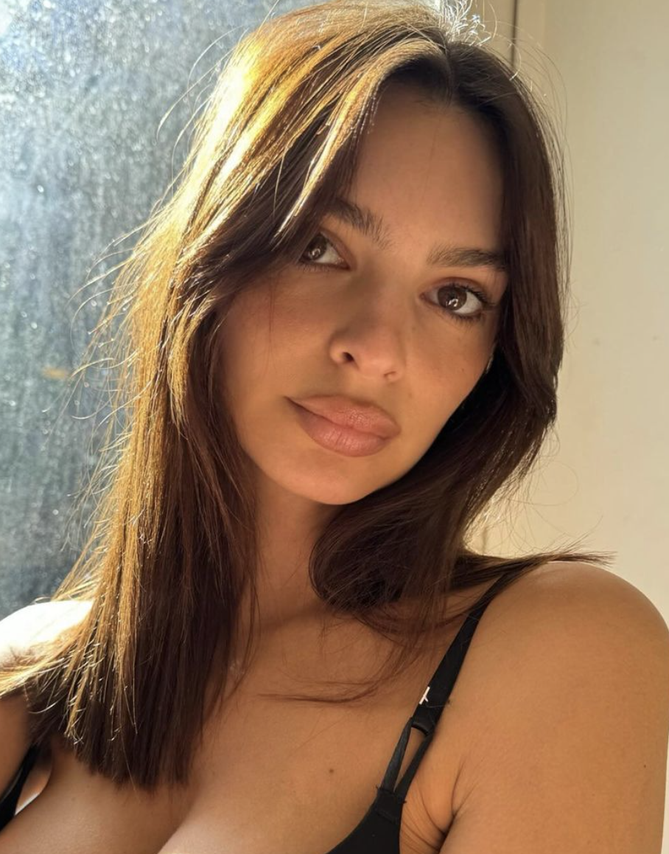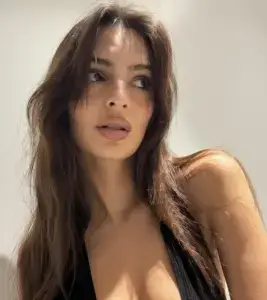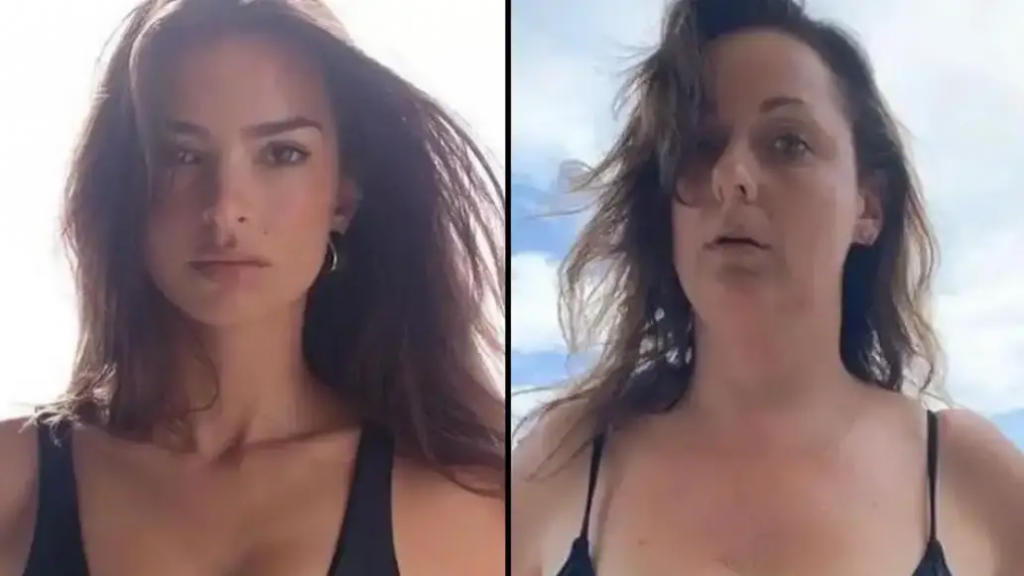Emily Ratajkowski, 33, has called on comedian Celeste Barber to stop recreating her Instagram photos, sparking a heated debate over humor, consent, and online satire.
Ratajkowski, widely recognized for her modeling and acting career, rose to fame with her role on Nickelodeon’s iCarly and later gained further recognition through her appearances in films like Gone Girl and We Are Your Friends. Her involvement in Robin Thicke and Pharrell Williams’ music video for “Blurred Lines” also cemented her status as a cultural icon.
Recently, however, her eye-catching Instagram content has made her a frequent subject of comedic imitations, particularly by Barber, an Australian comedian known for humorously mimicking celebrity posts.

The Source of the Controversy
Celeste Barber’s comedic recreations of celebrity photos have gained widespread attention. Her targets have included famous figures such as Kylie Jenner, Kim Kardashian, Bella Hadid, and Gwyneth Paltrow. Barber’s 2021 parody of Ratajkowski featured a bikini pose with the caption: “We are sick of you objectifying our bodies! Also, here’s my a**.”
While many find Barber’s humor entertaining, Ratajkowski has expressed discomfort with the parodies. On a radio appearance for Fitzy and Wippa, Barber claimed that Ratajkowski had blocked her on social media, stating: “I don’t think Emily is a fan. That’s okay—she’s allowed to not love it.”

Ratajkowski’s Perspective
Emily Ratajkowski addressed the situation on her High Low with EmRata podcast, explaining her decision to ask Barber to stop.
“This whole drama with Celeste has been blown out of proportion,” she said. “In general, I find her to be really funny. But the message I wanted to send was, ‘I just don’t want you to do this to me anymore.’”
She elaborated that the request came at a challenging time for her, adding: “I want to be able to do my thing—whether that’s writing about my experiences in an industry that doesn’t protect women or launching my bathing suit line.”
Ratajkowski also spoke about broader societal attitudes, describing the frequent ridicule of female influencers as “fundamentally sexist.” She pointed out that influencing has become a viable path for women to achieve financial independence, saying: “Yeah, no s*** women want to be influencers—it’s one of the ways women have learned to be successful and make money. They’re hustling.”

Barber’s Response
Celeste Barber has openly responded to the criticism. Speaking to Marie Claire, she acknowledged that her quick-witted humor has occasionally landed her in hot water.
“I like running my mouth off. I do it a lot. It’s one of my favorite things about me,” Barber said. “But I do feel like I censor myself sometimes. Then other times, I don’t give a f*** and operate from a place of already being canceled.”
Barber maintained that public perception is ever-changing, adding: “Good luck to them. One day they hate what you do, and the next day you’re the greatest thing in the world.”

The Broader Implications
Emily Ratajkowski has long spoken about the challenges she’s faced in the entertainment industry. In her book My Body and interviews, she has addressed how her looks have both propelled and hindered her career.

Reflecting on her experience, she told USA Today: “Producers have told me I’m too pretty to play certain roles. It’s frustrating because people see you as a model, not an actress. It takes a lot for someone to take a risk on you.”

She also noted in her book: “It had never occurred to me that the women who gained their power from beauty were indebted to the men whose desire granted them that power in the first place. Those men were the ones in control, not the women the world fawned over.”

A Complex Discussion
The ongoing clash between Ratajkowski and Barber underscores the complex dynamics of consent, humor, and public perception in the age of social media. While Barber’s parodies aim to critique societal norms with humor, Ratajkowski’s concerns reflect the challenges of navigating personal boundaries and public life as a high-profile figure.
The debate continues to ignite conversations about the balance between satire and respect, as well as the broader expectations placed on women in the public eye.
